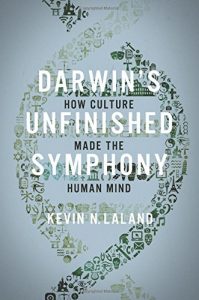My answer to the Scrabble-IQ debate which keeps coming up on the Unz Review, from a comment I wrote on there:
The entire debate may be about crystallized versus fluid intelligence.
Scrabble requires that one be intelligent enough to be able to “crystallize” the patterns for solving each situation, so that a person can do it without having to think about it the next time they run into the same situation, but no more intelligent than that.
Winning games like chess and Scrabble requires some fluid intelligence (IQ), and massive amounts of crystallized intelligence (stored solutions), which is why they need so much training.
If you are familiar with computing, it is easy to understand what this means. A lower-IQ person can simulate high IQ in a game like Scrabble using this function:
solve(game_context) {
if(cached_answer_exists(game_context)) {
return get_cached_answer(game_context); // extremely fast, even for a low IQ person
}
else {
return compute_answer(game_context); // slow, even for a very high IQ person
}
}
So a game like Scrabble has a very high “caching advantage”, a person who spends immense amounts of time with it will have thousands, maybe millions, of cached answers in their heads, that enable them to nearly instantaneously find the solution for a new game context, because there is no computation involved, the solution is cached in their brains.
A lower-IQ Scrabble “genius”, however, will be incapable of mastering a topic of study they have never studied before (such as economics), so that they can quickly (within a year or two) come up with original and interesting solutions and ideas within the field, because their genius is about being good at caching answers. Their genius has nothing to do with fluid intelligence, the type of intelligence needed to handle massive data, operate on it and synthesize new things from it. Your millions of cached Scrabble solutions are just that, millions of cached Scrabble solutions. A Scrabble genius is like a computer that has tons of Scrabble solutions and is very good at winning Scrabble games, but that cannot do much of anything else. The computer is not an AI genius, it simply has a hard drive that is filled with canned solutions.
My hypothesis, therefore is this: A race or nationality’s ability to master Scrabble does not predict its intellectual, scientific or technological achievements, because Scrabble does not require very high IQ, while the rest of these things do.
In fact, I would hazard a guess that very few really-high-IQ people (135+) bother to play games like Scrabble, because they would rather do something open-ended, rather than something entirely unproductive, with their time.
Another hypothesis is this: A Scrabble genius will be very bad at games with a low caching advantage. Thus a race or nationality that is good at Scrabble will perform worse at Go than a higher IQ nation, because Go has a lower caching advantage (it requires more fluid intelligence, i.e. IQ, since the situations that arise in the game are too diverse to cache, there will of course still be some caching advantage, therefore we must find a game that has a very low caching advantage, such as…Raven’s Progressive Matrices).

